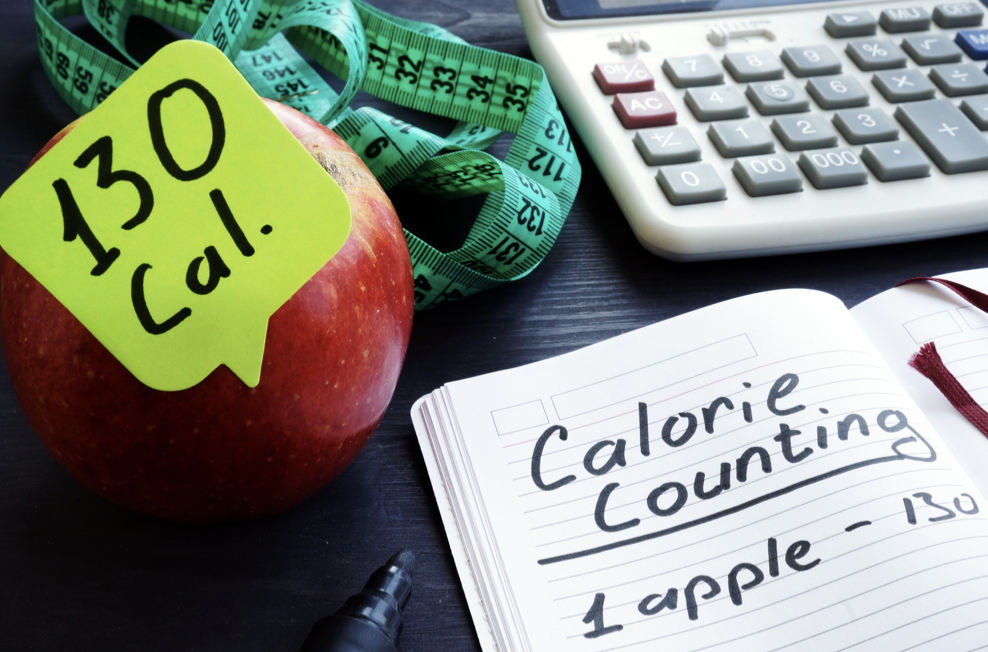Once upon a time, I wrote an article about why caloric deficits are overhyped, and the summary was generally this:
Most of us want to have leaner and more muscular bodies, and yet a disproportionate amount of enthusiasm and marketing in the fitness space go toward calorie deficits instead of modest caloric surpluses or eating at maintenance.
And I'm really no one to talk. I find myself tooting the caloric deficit horn much more than the surplus horn.
Why?
Because most people are chubby and like the idea of losing some fat immediately as a boost of confidence that they're moving in the right direction.
Right! That makes a lot of sense, and that approach is still going to work really well for most people.
But there's another way for another crowd that you just might fall into, and it’s likely why this article piqued your interest in the first place.
You want to know how to improve your body composition without tracking calories.
Personally, I think that’s wonderful.
In fact, if I had it my way, everyone would be working toward how to eat an abundance of nutrient-dense foods while pursuing a healthy bodyweight and body composition.
Why do I say this?
Although tracking calories meticulously for fat loss can be extremely effective, it’s not all rose petals and bubblebaths.
In fact, it can be quite the opposite when done poorly.
To illustrate that point, let's start by briefly addressing a frustrating yet very common reality for a lot of people who plunge headfirst into the “deficit or die” mentality when it comes to tracking calories.
WHY TRACKING CALORIES FOR improved body composition can be frustrating
Tracking calories works, but...
The problem with tracking calories is that you start to think about food as just calories.
And being in a calorie deficit usually implies eating fewer calories than you might like.
So to maximize food volume, you start doing weird things to eat fewer calories like making Frankenstein French toast with low calorie bread, sugar-free syrup, and egg whites.
And then your energy starts to decrease because you're depriving yourself of energy on purpose (and eating weird foods that might be void of any real nutritional value).
You become afraid of bananas because they're the "highest calorie fruit!" Gah!
And peanut butter is the devil because fat! Gah!
And then all of sudden you’re the weird guy or gal who eats weird things in the name of “fitness.”
And then going to the gym becomes a real pain in the bum because "you just don't feel like it."
And then your training starts to suck. You're not getting stronger. You’re actually getting weaker. And you've maybe lost a few pounds, but you're still soft, chubby, and unhappy.
And then you order 47 Papa John's pizzas and a birthday cake to yourself on a Friday night and never see the gym again.
That last bullet point is a bit of a joke, obviously, but hopefully you see the truth in the comedy.
Let me just pause briefly and remind you that doing the above absolutely works if all you care about is losing fat.
And that's not me trying to passively shame you into being "that person.” It’s totally fine to care about losing the fat above all else.
In fact, that above list is exactly what I did to lose 31 pounds and land myself the physique you see here.
So it definitely works. And I'm not taking a dig at it at all. I'm just being objective about the pros and cons while trying to make a specific point.
But again, we’re here to talk about how to avoid tracking calories while still making meaningful progress in improving our body compositions.
Are you ready for it?
Here it is:
Start training really hard while eating an abundance of whole foods without tracking a single calorie.
Some of you may be thinking, "That sounds reckless! All of this banter about how calories matter most for looking like Ken and Barbie and now you're telling me to eat in abundance. Lies!"
Let me explain.
Why not tracking calories for improved body composition might be better for some people
From day one there is no notion of unnecessary restriction. In fact, the only restriction in this game is that you're bound only to whole, minimally processed foods. In other words, this is "clean eating" for lack of a better term. Vegetables, fruits, legumes, nuts, seeds, whole grains, and lean proteins.
That's cool because being restricted is annoying. But I've found that being restricted to certain categories of food is more fun than being restricted to certain quantities of food. You might be different, and that would be totally fine. I'm just making that point.
It's also cool because now you get to focus on your health instead of math. You're only eating whole foods, so there's a really good chance the nutrient density of your diet goes way up! That's great.
You're also probably eating much more fiber now because you may have traded in a microwavable Lean Pocket for a bowl of oats with berries and soy milk.
You're also probably not binging anymore because you can't really binge on "healthy food," you know? Seriously, grab yourself a bowl of brown rice, steamed veggies, and tofu and see how wild things get. I doubt they get very wild.
So now you just have to train hard and effectively! If you need some direction on what that means, click here.
Training hard is more fun now because you actually have energy to push around big weights. Yes, I am suggesting that a diet of oats and berries for breakfast might make you feel better and more energetic than frosted donuts and a whey shake.
In fact, maybe you really start to enjoy training because you're seeing the numbers go up. Good vibes!
And you're catching pumps in the gym. Ladies, the legs and the glutes are growing! Fellas, you just noticed a juicy new bicep vein in your right arm.
And then you move from 3x per week in the gym to 4x to week in the gym because it feels like medicine and you're actually learning to love the process.
And then all of a sudden you've been crushing your gym sessions for a month without having tracked a single calorie.
Maybe you weigh the exact same, but you've built muscle underneath!
Or maybe you weigh less "on accident" because you started fueling your body with pure goodness instead of occasional junk, and the sum effect of it all was a reduction in scale weight.
Or maybe you weigh more because you're building muscle while eating like a beast.
And slowly but surely you get leaner and more muscular through the simple practices of eating exclusively nutritious foods and then using that energy to fuel your increasingly productive training sessions.
That's what a life without calorie-tracking could look like.
CONS OF NOT TRACKING YOUR CALORIES
The obvious cons to this strategy might be:
That you're not guaranteed any systematic fat loss results. I want to make this very clear. You can absolutely eat more than you need to even while eating a whole food diet, but it's just less likely to happen than in the context of a diet littered with pizza, burgers, ice creams, and donuts. This could be frustrating to some people with a very specific goal, but my guess is that some people would actually enjoy the freedom of the motto, "Eat in abundance. Train like a freak." I know I sure do.
The key here is not to make obvious mistakes like sitting down to watch a TV show with a jar of peanut butter or a back of pistachios. We all know nuts and nut butters are healthful food choices, but they are also very calorically-dense, which means you need to be careful to consume them in moderation.
You also have to actually train hard and intelligently. The caveat here is that you might gain some unwanted fat if you only adopt the eating portion of this framework. Or you might not! I still think it would be a great step in the right direction regarding your overall health, but if you think that's a con, this approach might not be for you.
PROS OF NOT TRACKING YOUR CALORIES
The pros (in my opinion) are:
You're free to eat foods without looking at them like numbers! That can be so freeing for a lot of people.
You then start to see your dietary freedom as a motivator for training hard! Speaking personally, I’ve gone through phases when I was eating 4,000 calories per day (which I never thought would be the case), which means I was able to show up to the gym with purpose every day. It's like, "Okay, 4,000 calories per day? I literally have no excuse not to wreck this workout. Game on." What a fun way to train!
You have an abundance mindset instead of a scarcity mindset.
Your health and fitness get top priority instead of the mirror and/or the comments from friends and co-workers.
It's suited well for people who are willing to embrace habits-based change and long-term improvements.
The question then becomes, “How do you want to live?”
If you decide you would prefer the systematic results of a tracking approach, that’s great! Seriously, it’s amazing approach for a lot of people (including me in certain seasons of training).
On the other hand, if you decide you like the idea of focusing purely on the consumption of nutrient-dense whole foods while training with purpose, that’s also great!
I have done both and will continue to utilize both as needed depending on my specific goals.
Similarly, the point is to make an educated decision about what is most likely to work best for you.
How to Take Action If You Don’t Want to Track Calories
Commit yourself to eating only (or mostly) whole foods.
This means getting nearly all of your calories from vegetables, fruits, legumes, whole grains, nuts, seeds, avocados, and lean proteins.
If you like to snack aimlessly, try to snack mostly on vegetables and fruits instead of fats like nuts and seeds.
Nuts and seeds have amazing health benefits, but you’ll always want to consume them in moderation to help minimize the risk of caloric overconsumption.
Some good options would be carrots and celery or apples and oranges.
Drink mostly if not exclusively water with maybe black coffee or tea.
Make sure you have a great training program. If you don’t know where to start, click here.
Try to sleep and reduce stress as much as you can.
We didn’t discuss these in this article, but these two in tandem seem to be the mostly commonly neglected step-children in the context of successful body recomposition efforts.
Summary
Remember that you don't have to put yourself in a specifically-calculated calorie deficit from day one.
You can keep it very simple by eating lots of nutritious whole foods and training effectively and with purpose.
I can almost guarantee that the results in due time will come and that you’ll be happier than ever.
Thanks for reading! I really hope you were able to take something meaningful away from this article.
If you feel like it brought you any value at all, consider sending it to a friend or family member - especially someone whose lifestyle just simply doesn’t allow for a life of food scales and perfectly-tailored macro splits.
Later, guys.
-Andrew

























